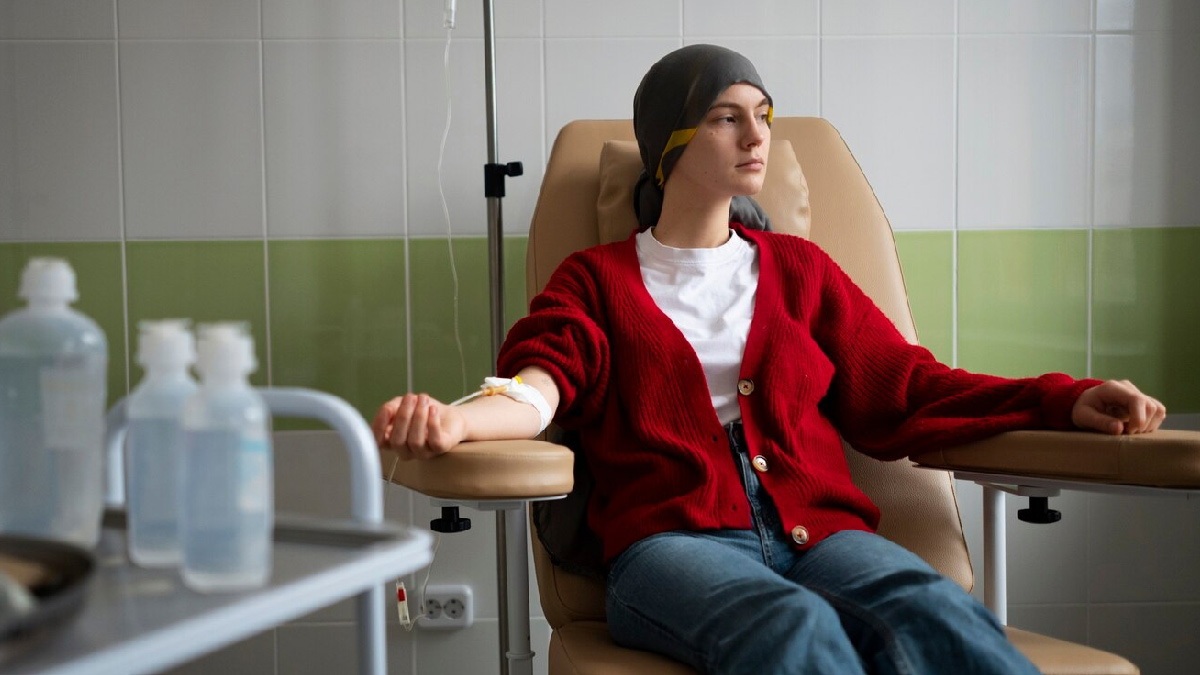
Every year, millions of people worldwide lose their lives to the dreadful disease known as cancer. For patients battling with cancer, choosing the right treatment is the first priority. Oncologists often turn to chemotherapy and immunotherapy, two distinct approaches with unique mechanisms. To raise awareness about cancer and its treatments on the occasion of World Cancer Day, we got in touch with Dr Ashish Gupta, Chief Oncologist from Unique Hospital Cancer Centre, Delhi who explained the distinctions between immunotherapy and chemotherapy.
Table of Content:-
Chemotherapy
Purpose: Kills fast-growing cells (both cancerous & non-cancerous) in the body.
Execution: Administered through the bloodstream, impacting the entire body.
Mechanism: Disrupts the cell replication process at various stages.
Immediate Impact: Shrinks tumours and kills cancer cells rapidly.
Side Effects of Chemotherapy: Hair loss, anaemia, nausea, fatigue, and weakened immune system.
Immunotherapy
Purpose: Enhances the immune system to identify and attack cancer cells.
Execution: Stimulates immune response to continue even after treatment.
Mechanism: Uses the body's own defences to fight cancer.
Impact over Time: Effects extend over a longer period.
Side Effects: Overactive immune response, resembling flu-like symptoms and/or inflammation like symptoms.
Also Read: Side Effects After Cancer Surgery: Common Issues and Their Management

How Immunotherapy Works
According to Dr Ishu Gupta, Chief Oncologist, Cancel Cancer Hospital, Delhi, "This technique teaches the immune system to recognize and fight cancer cells and is often used alongside conventional treatments like surgery and chemotherapy. Immunotherapy is now used in nearly all types of cancers like lung, breast, head and neck, colon, skin, liver, uterus cancers etc."
How Chemotherapy Works
“Chemotherapy, a longstanding cancer treatment, utilises drugs to target and destroy fast-growing cells. Its versatility makes it applicable either independently or in combination with other treatments, constituting multimodal approaches. It involves the usage of toxic drugs to damage cancer cells, also damages some healthy cells and is administered systemically through injection or orally,” stated Dr Gupta.
Also Read: Dancing Through Chemotherapy: Kathak Artist’s Battle with Ovarian Cancer
When do doctors give chemotherapy and/or immunotherapy?
In Stage I-III cancer patients:
- Neoadjuvant- administration of chemotherapy and/or immunotherapy before surgery. This has been gaining momentum in the last few years with good results.
- Adjuvant- these treatments given after surgery
In Stage IV cancer patients:
- Palliative- given in Stage 4 settings when surgery is not possible
Immunotherapy Vs. Chemotherapy: Noteworthy Differences
Dr Ashish Gupta, concluded, “We have seen many promising results if chemotherapy and/or immunotherapy are given before surgery in the right patient. We now have biomarkers that can tell if immunotherapy is a good option for you or not. The costs of these treatments have come down over the last few years and are becoming more accessible to a greater number of patients.”
The choice between immunotherapy and chemotherapy pivots on a nuanced understanding of individual cases. Consultation with oncologists plays an effective role in drafting a systematic plan for battling cancers.
Final Word
There are different types of cancer treatment and your doctor would suggest the best treatment as per your cancer condition. It is recommended that you follow your doctor’s instructions. While all the cancer treatments have their set of pros and cons, trust your doctor for the best suggestion for your case. Additionally, take good care of your nutrition and take necessary steps to boost your mental & emotional health.
Also watch this video
How we keep this article up to date:
We work with experts and keep a close eye on the latest in health and wellness. Whenever there is a new research or helpful information, we update our articles with accurate and useful advice.
Current Version